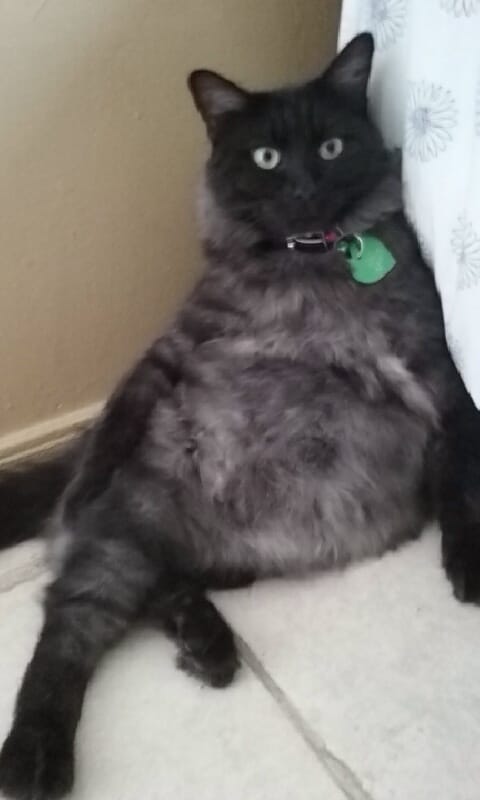fat cats-Cats are often loved for their unique personalities and charming appearances, but a growing number of cat owners have to deal with the issue of feline obesity. This guide will explore why cats, particularly orange cats, tend to get fat, the health concerns related to this, and how long fat cats typically live. Whether you’re wondering why orange cats are fat, or more generally, why do cats get fat, this article provides the insights and solutions you need.
Why Do Cats Get Fat?
One of the most common questions cat owners ask is, why do cats get fat? There are several reasons behind feline obesity, and understanding these can help prevent your cat from gaining excess weight.
- Overeating: A cat that is fed too much and not given enough exercise will quickly gain weight. Many indoor cats live more sedentary lives, making them prone to overeating and weight gain.
- Poor Diet: Cats fed a diet high in carbohydrates, especially dry food, are at a greater risk of becoming overweight.
- Lack of Physical Activity: Cats that are less active, particularly indoor cats, don’t burn off the calories they consume, leading to fat accumulation.
- Age and Metabolism: As cats age, their metabolism slows down, and they become less active, increasing the likelihood of weight gain.
- Medical Conditions: Certain medical issues, like hypothyroidism or diabetes, can lead to weight gain in cats.
Cats that suffer from obesity face serious health risks such as diabetes, heart disease, and arthritis. It’s crucial to monitor your cat’s diet and ensure they get enough exercise to maintain a healthy weight.
Why Are Orange Cats Fat? – fat cats
A common belief among cat lovers is that orange cats tend to be fatter than cats of other colors. But is there any truth to this?
- Genetic Factors: Some studies suggest that certain cat breeds, like the orange tabby, are more prone to gaining weight due to their genetic makeup. These cats may have a slower metabolism, causing them to gain weight easily.
- Personality Traits: Orange cats are often perceived as friendlier and more social, leading them to beg for food more frequently, which may contribute to their weight.
- Overfeeding: Owners of orange cats may overfeed their pets because of their friendly and vocal nature, resulting in extra weight.
- Neutering: Like many cats, neutered orange cats tend to gain weight more easily due to hormonal changes that lower their activity levels.
While not every orange cat is overweight, the combination of genetics, personality, and feeding habits can result in fat orange cats. Monitoring food intake and encouraging play are essential for maintaining a healthy weight in orange cats.
How Long Do Fat Cats Live?- fat cats
The lifespan of a cat can be impacted by various factors, including weight. So, how long do fat cats live?
On average, healthy domestic cats live around 12-15 years, but fat cats may have a shorter lifespan due to the health complications associated with obesity. Obesity in cats can lead to:
- Diabetes: Overweight cats are at a higher risk of developing diabetes, a condition that can significantly reduce their quality of life and lifespan.
- Heart Disease: Just like in humans, carrying extra weight can put extra strain on a cat’s heart, leading to cardiovascular problems.
- Joint Issues: Obese cats are more likely to suffer from arthritis, limiting their mobility and ability to engage in physical activity, which creates a vicious cycle of further weight gain.
- Breathing Difficulties: Fat cats may experience respiratory issues, especially when they sleep or attempt to exercise, due to the added pressure on their chest and lungs.
Maintaining a Healthy Weight in Cats
To ensure that your cat lives a long, healthy life, it’s important to take steps to manage their weight. Here are a few strategies:
- Proper Diet: Feed your cat high-quality, protein-rich food that mimics their natural diet. Avoid over-reliance on high-carb dry food, which can contribute to weight gain.
- Regular Exercise: Encourage your cat to play and be active. Use toys, laser pointers, or cat trees to engage them in physical activities.
- Monitor Portion Sizes: Stick to recommended portion sizes and avoid free-feeding your cat, especially if they are prone to overeating.
- Routine Checkups: Take your cat for regular veterinary checkups to monitor their weight and address any health concerns early.
Orange Cats and Lifespan: What’s the Connection? – fat cats
As mentioned earlier, orange cats may have a predisposition to weight gain, but how does this affect their lifespan? There is no concrete evidence that orange cats live shorter lives solely because of their color. However, if an orange cat becomes obese, the same health risks associated with obesity in any other cat breed will apply.
Thus, while fat orange cats may not live as long as their healthier counterparts, keeping them at a healthy weight with the right diet and exercise can ensure they live a long and happy life.
Feline obesity is a growing concern, and many cat owners find themselves asking, why do cats get fat and how long do fat cats live. Whether it’s due to overeating, lack of exercise, or genetics, managing a cat’s weight is vital for their long-term health and well-being. Why are orange cats fat? It could be a combination of genetic factors and overeating, but all cats, regardless of color, can become obese if not properly managed.


